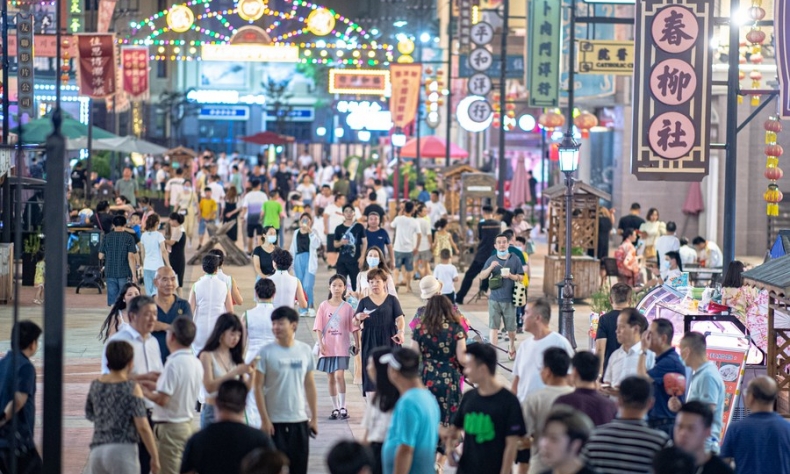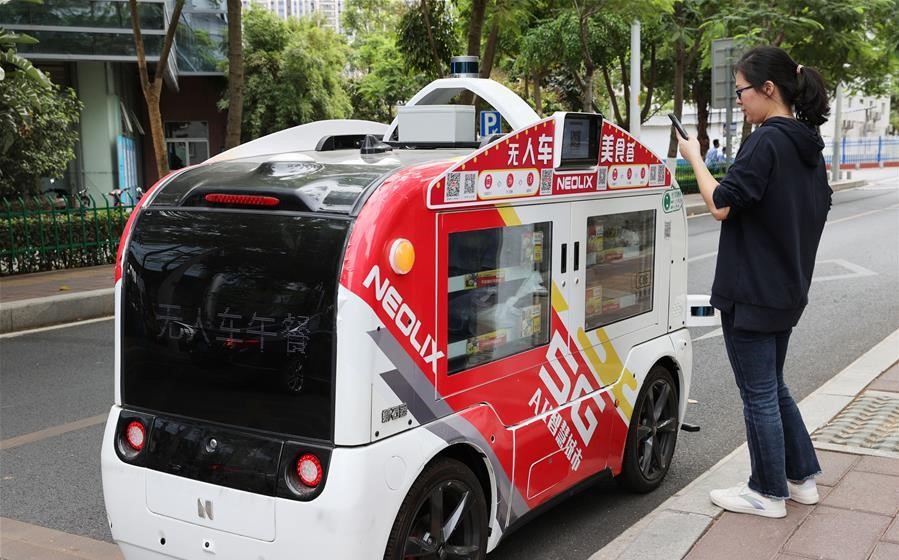Details Show China’s Remarkable Progress in Human Rights

In China’s human rights ideals, governments are always encouraged to do their part of governance to create larger free space for individuals.
As a scholar who has traveled to around 100 countries in the world, including almost all Western countries, I would like to mention the major progress that China has achieved in human rights. The progress can be seen in three forms of “freedom”.
The first one is the “freedom of air conditioners”. Today, air conditioners have become an affordable home appliance to every Chinese family. Data of recent years shows that about 150 million air conditioners are sold around the world annually, 70 percent of them are made in China and one third of them are bought by Chinese. China’s share of the world’s total air conditioner in use is double of China’s share in the world’s population. Across China, more than 90 percent families have their home with air conditioners. But that number does not exceed 30 percent in North America and Europe, and much lower in other developing countries.
The industry chain behind the “freedom of air conditioners” should not be underestimated. Because it means the development of Chinese industries, such as the advanced manufacturing industry with energy saving and emission reduction technology, matured home appliance business with convenient service of fast delivery and installation as well as the complete power supply and grid with cheap electricity. The “freedom of air conditioner” for 1.4 billion Chinese people itself is a remarkable progress in human rights.
The second one is the “freedom of enjoying night snacks”. In every Chinese city, even a small county with a population of only tens of thousands in a remote corner of China, there is a night fair bustling with snack stalls along the street. Some snack stalls stay open until late every night. When night falls, many Chinese would like to visit the night market or go out for night snacks as a fun part of their daily life. Such things could not happen in all countries. On the contrary, it would be very quiet on streets in most European and American cities after 10 p.m. in the evening.

Actually, the “freedom of enjoying night snacks” reflects the good public security of a city and a safe food supply chain. It enriches the lives of common people and extends their time for engaging in social and recreational activities after work. Apparently, this “freedom” is also a progress in human rights.
The third one is the “freedom of affordable household services”. Unlike the expensive household services in Europe and North America, most people in China can afford convenient household services, including quick delivery of food, car rental, room cleaning, and housing repair. Within 30 minutes, the food can be delivered to a customer who ordered at home. Taking about three minutes, a taxi can reach a passenger who hails the cab through mobile phone apps. After waiting an hour or so, service workers can arrive at the door of a household for repairing or cleaning. The prices of these services are affordable to common people. Even low-income people can enjoy these services quickly and conveniently by ordering through apps in their smart phones.
The “freedom of household services” means the improvement of living standards to the ordinary people. The affordable household services are brought by the development of digital economy, improved social trust and infrastructure. It shows that social services are equally available to all people and the income gap has been substantially narrowed. Compared with most of other countries, the middle and low-income group can enjoy much better social services at affordable prices in China.
The Chinese style freedom mentioned above seems ordinary in everyday life. Just as China always emphasizes the combination of effective market and capable government, it is actually an integration of the civil liberty and government’s governance power, which is rarely referred to in Western human rights theories.
In traditional Western human rights theories, more attention is often paid to limiting the government’s governance power in order to reduce the possibility for the government to persecute citizens. Meanwhile it advocates maximizing individual freedom to realize the development of human rights. Such thinking of binary opposition on government governance and civil liberty leads to the confrontation between the government and individuals. As a result, the government would become less capable in social governance and individuals would enjoy fewer social benefits. This is also a consequence of what American political scientist Samuel Huntington called “an excess of democracy”, or “an excess of freedom”.

On the contrary, in China’s human rights ideals, governments are always encouraged to do their part of governance to create larger free space for individuals. Chinese do not like to spend time and strength on the endless debate on public service and infrastructure construction like what has happened in Europe and America. Instead, the Chinese choose to trust their governments and coordinate with governments’ development plans. In this way, over the past 20 years, China has completed construction of tremendous high-quality infrastructures, including high-speed train network, airports, subway systems and 5G network, most of which rank top in the world. It is also commendable that Chinese cities are convenient, stable and safe for residents and tourists. All these well-improved infrastructure conditions and good environment enable Chinese people to fully enjoy the freedom of action, the freedom of travelling, the freedom of migration and the freedom of living, further improving living standards of individuals, enriching their lives and prolonging their life span, and fundamentally facilitating the comprehensive development of individuals.
Freedom of the Chinese style, in my opinion, places more emphasis on the actual results of freedom, while the Western freedom gives more attention to procedural justice. Historically, Western freedom had made epoch-making contributions to the emancipation of human mind and the improvement of human wellbeing since Glorious Revolution, French Revolution and the Independence of the United States.
But freedom is not a static concept. It continues to evolve as time goes on. Freedom should not only be a process, but also be a result. In pursuing freedom, if the procedures conflicts with the results, the procedural freedom should give way to the result of freedom. For example, people have the freedom to bear arms in the United States. Nevertheless, people fear to go out at night, which limits free activities of people consequently. So, shouldn’t we have a rethink of such kind of “freedom” to bear arms?
As the largest developing country in the world, China is still and will remain in the primary stage of socialism for a long time. China has a long way to go in improving national income, environmental protection, social equity, rule of law, cultural services and political rights. It is believed that the cause of human rights in China will keep advancing forward and China will make a greater contribution to the progress in human rights worldwide.
Wang Wen is professor and executive dean of Chongyang Institute for Financial Studies at Renmin University of China.
The article reflects the author’s opinions, and not necessarily the views of China Focus.
Translated by Bai Shi
 Facebook
Facebook
 Twitter
Twitter
 Linkedin
Linkedin
 Google +
Google +










